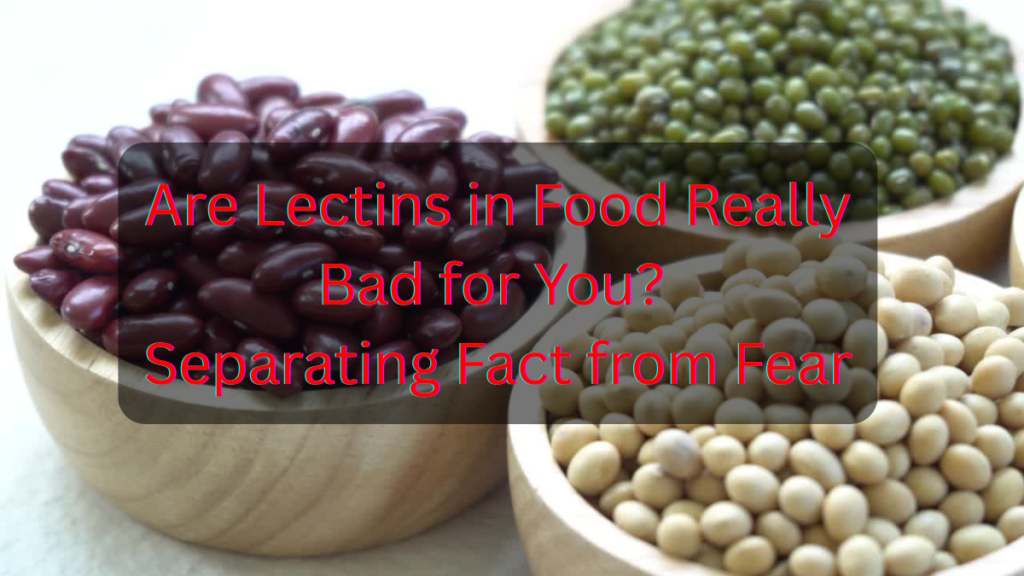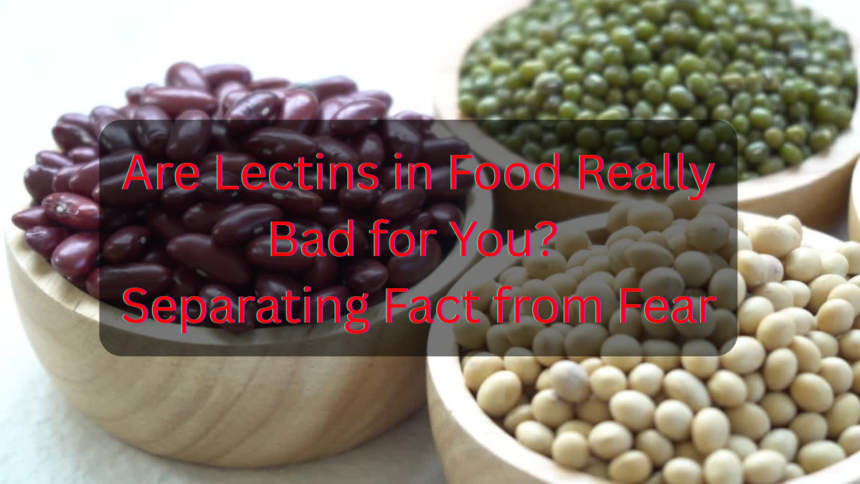Lectins in Food Really Bad for You?
If you’ve spent any time browsing health blogs or diet trends, you’ve probably heard the buzz about lectins—plant proteins that some claim are harmful, causing everything from digestive issues to chronic inflammation. But how much of this is based on solid science, and how much is just fear-mongering?
In this post, we’ll dive deep into the world of lectins, examining what they are, whether they’re truly dangerous, and how to enjoy lectin-rich foods without worry. Let’s separate fact from fear and get to the truth.

What Are Lectins?
Lectins are a type of protein found in many plants, particularly legumes (beans, lentils, peanuts), grains, nightshade vegetables (tomatoes, eggplants, peppers), and some dairy products. Their primary role in nature is to protect plants from pests and diseases—acting as a natural defense mechanism.
In humans, lectins can bind to carbohydrates in the digestive system, which has led to concerns that they might interfere with nutrient absorption or cause gut irritation. But does that mean we should avoid them altogether? Not necessarily.
The Lectin Controversy: Are They Really Harmful?
The debate around lectins largely stems from studies showing that raw or improperly prepared lectin-rich foods (like raw kidney beans) can cause digestive distress. For example, phytohaemagglutinin, a lectin found in raw kidney beans, can be toxic in high amounts.
However, cooking, soaking, and fermenting significantly reduce lectin content, making most lectin-containing foods safe to eat. The idea that all lectins are harmful ignores the fact that many nutrient-dense foods (like beans, whole grains, and vegetables) contain them—and these foods are staples in some of the world’s healthiest diets.
Video Credits
Common Claims About Lectins—Debunked
- “Lectins Cause Leaky Gut”
- Some claim lectins damage the gut lining, leading to “leaky gut syndrome.” While high amounts of raw lectins can irritate the gut, properly cooked lectins are unlikely to cause issues for most people.
2.“Lectins Cause Inflammation”
- Certain lectins may trigger inflammation in sensitive individuals, but for the majority, anti-nutrient effects are minimal when foods are prepared correctly.
3.“You Should Avoid All Lectin-Rich Foods”
- Cutting out lectins would mean eliminating many fiber-rich, antioxidant-packed foods that support gut health and reduce disease risk.
How to Reduce Lectins in Your Diet (If Needed)
If you’re sensitive to lectins or simply want to minimize exposure, here are some practical tips:
✅ Cook Foods Thoroughly – Boiling legumes and grains significantly reduces lectin levels.
✅ Soak and Sprout – Soaking beans, lentils, and seeds before cooking helps break down lectins.
✅ Ferment Foods – Fermentation (like in sourdough bread or tempeh) reduces lectin content.
✅ Peel and Deseed – Lectins are often concentrated in skins and seeds (e.g., tomatoes, peppers).
✅ Diversify Your Diet – Eating a variety of foods prevents overexposure to any single type of lectin.
Should You Go Lectin-Free?
Unless you have a specific sensitivity (such as an autoimmune condition where lectins may aggravate symptoms), there’s little evidence that a lectin-free diet is necessary—or even beneficial. In fact, many lectin-containing foods are linked to longevity and disease prevention.
For example:
- Beans and lentils are high in fiber, protein, and essential minerals.
- Whole grains support heart health and digestion.
- Nightshade vegetables are rich in vitamins and antioxidants.
Instead of fearing lectins, focus on proper food preparation and listen to your body’s responses.
Final Thoughts: Balance Over Fear
The truth about lectins isn’t black and white—they’re not universally “bad,” but they may affect some people more than others. Instead of jumping on the lectin-free bandwagon, consider whether these foods actually cause you discomfort.
If you’re concerned, try reducing lectin-heavy foods temporarily and observe how you feel. But for most people, well-prepared lectin-rich foods are a healthy part of a balanced diet.
What’s Your Experience with Lectins?
Have you tried a low-lectin diet? Did you notice any changes? Share your thoughts in the comments below! And if you found this post helpful, don’t forget to share it with friends who might be curious about lectins.











